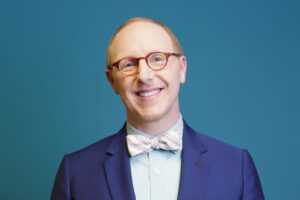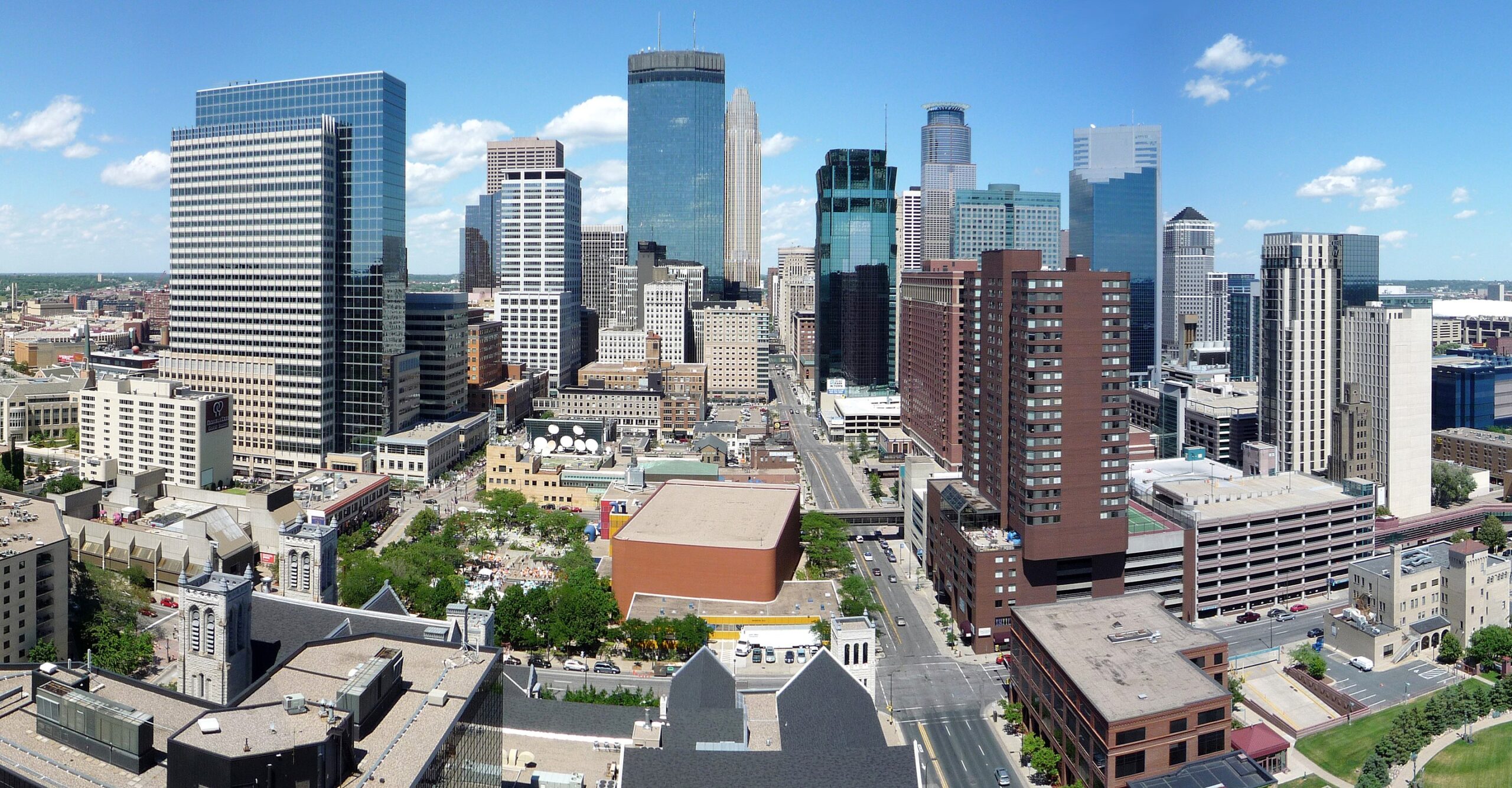
A passion for social justice, anti-racism and tikkun olam has animated Jeremy Hanson Willis throughout his career in public service, advocacy and nonprofit leadership.
Seeking to advance those values, Hanson Willis recently joined the professional leadership of Reconstructing Judaism as its new vice president for strategic advancement. He is overseeing the organization’s fundraising and communications efforts and will help guide strategy as an integral member of the presidential cabinet.
During his career, Jeremy has led an LGBTQ/HIV health services and advocacy organization, served as chief of staff to then–Minneapolis Mayor R.T. Rybak, held economic development roles with both the City of Minneapolis and the State of Minnesota, and worked as policy director for the Minnesota Smoke-Free Coalition.
Recently, he sat down with members of the strategic advancement team to talk about his career journey as well as his hopes and goals.
What drew you to Reconstructing Judaism?
For me, coming to Reconstructing Judaism at this point in my life is really a continuation to live and demonstrate values and principles that have been a throughline during my entire career: a focus on social justice, anti-racism, and tikkun olam.
As I looked at the next stage of my career, I knew I needed to be in a place where those values were celebrated and demonstrated on a regular basis. One of the reasons I’m so proud to be part of the Reconstructionist movement is its steadfast dedication to talking about and demonstrating commitments to anti-racism.
Why is it so important that Reconstructing Judaism continue to focus on racial justice?
As someone who has lived and still lives in Minneapolis and saw firsthand the impact of George Floyd’s murder and the aftermath, I know that we cannot step back in any way on commitments to racial justice and equality.
And especially now, where so many organizations are either directly or subtly retreating from that work, those of us committed to it need to stay steadfast. As we see in the world today, racism is as rampant as ever. As Jews, we need to be stepping up and calling out racist practices and policies and continuing the work on racial equity.
In the course of my life, I have been part of and still exist in populations which are often seen as being on the margins and excluded and erased. As a gay Jew, as a member of a multiracial family, I see every day the challenges that disenfranchised populations face.
And what I see every day in the Reconstructionist movement is an authentic and unyielding dedication to bringing in those erased and excluded voices. To celebrate and to engage and to truly listen and empower those folks to be part of the community.
And in my experience, after 50 –plus years on this planet, those kinds of spaces and experiences are very rare.
What are your hopes for Reconstructing Judaism?
One of the challenges for Reconstructing Judaism is that we’re a small organization and it takes a lot of creativity for us to be able to get the word out and let people know about all the amazing resources and tools that we have.
More than anything, I don’t want that to be the best kept secret in the Jewish community. I want that to be more widely known. And a hope that I have is that more people will know about, will engage, and will use the resources and tools that we have to offer.
How does being a parent influence how you approach your work?
One of the aspects of my life that has become so much more predominant these last few years is my identity and role as a parent and wanting to make sure that my child grows up in a safe and supported world wherever she may be, in Jewish community, at school, and throughout her life.
So much of what fuels me today and the work that I do in social justice and racial equity and in furthering the Reconstructionist movement is to ensure that my child and children everywhere continue to have spaces that are not only safe, but welcoming and supportive.
Can you remind our readers why is it so important to invest in the future of Reconstructing Judaism, to make a gift?
Your gift helps to ensure that Reconstructionist congregations everywhere are connected to community and have the support that they need to care for their congregants. Your gift helps to ensure that inclusive and relevant and modern resources and tools deeply rooted in tradition and Jewish history are available to people right now.
Can you tell us a little about where and how you grew up?
I grew up on a farm in northern Minnesota and then moved to the Twin Cities, where I went to college. In my professional life, I have led a bifurcated existence with one foot on the farm and one foot in the city. And that experience has really given me a great understanding of the different ways that people live their lives.
My family still lives in rural Minnesota, while I have become a city person. It’s a nice place to be from and I still love visiting. I’m often reminded, when I visit, about the isolation that can happen as well as the close-knit communities built in rural areas.

What nourishes you? What do you love to do?
One of the activities that really refuels me and fills my soul is being outdoors. Having grown up on a farm and now living in the city, I yearn for any opportunity that I can get to be camping or hiking or canoeing and being in nature and enjoying everything that nature has to offer.

I’m a big advocate for going outside, whether that means a stroll in your local park or a weekend away camping. Anything that we can do to get outside and to get in nature has statistically been shown to make us healthier and happier. I try to make that a big part of my life and having grown up and lived in Minnesota, that means lots of different activities throughout the year, snow and summer. If I’ve learned anything, it is how much happier and healthier and whole that I feel when I can spend time outdoors.





